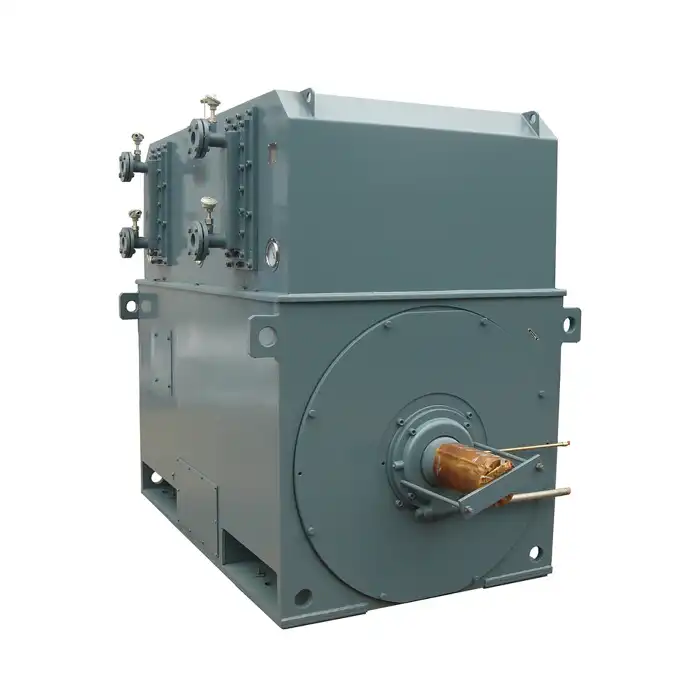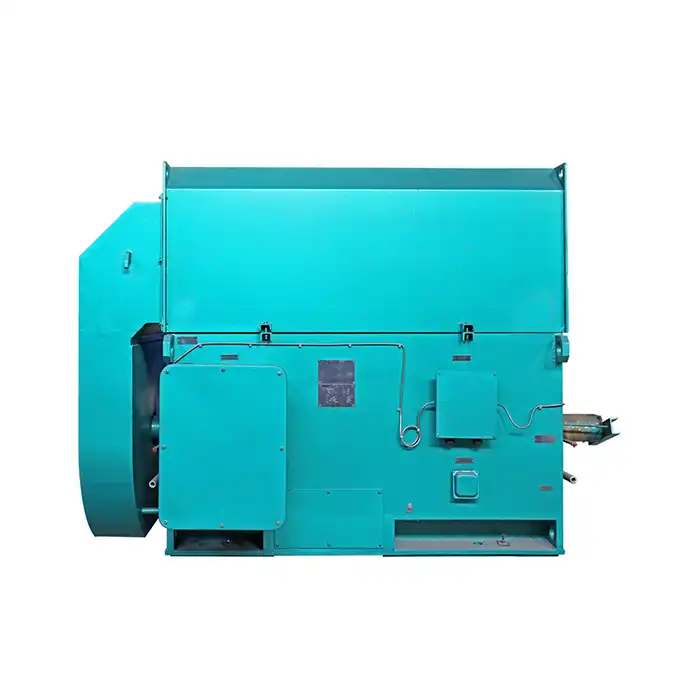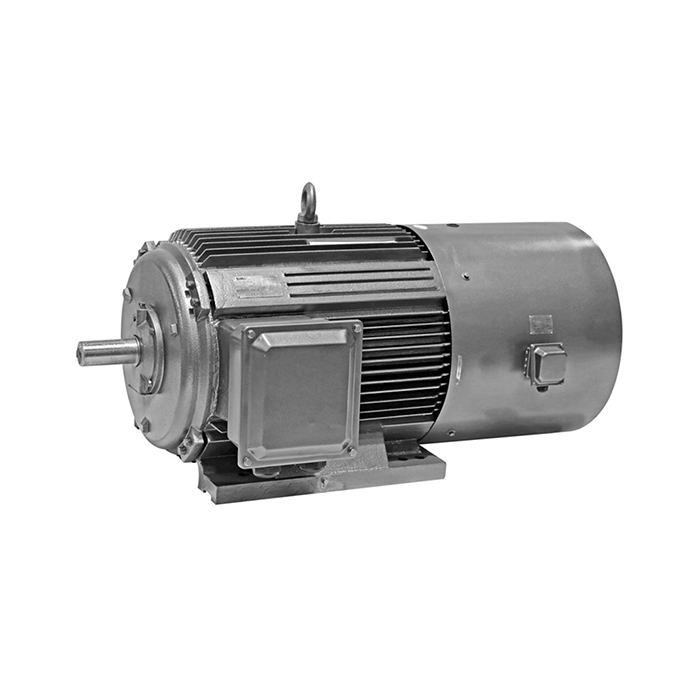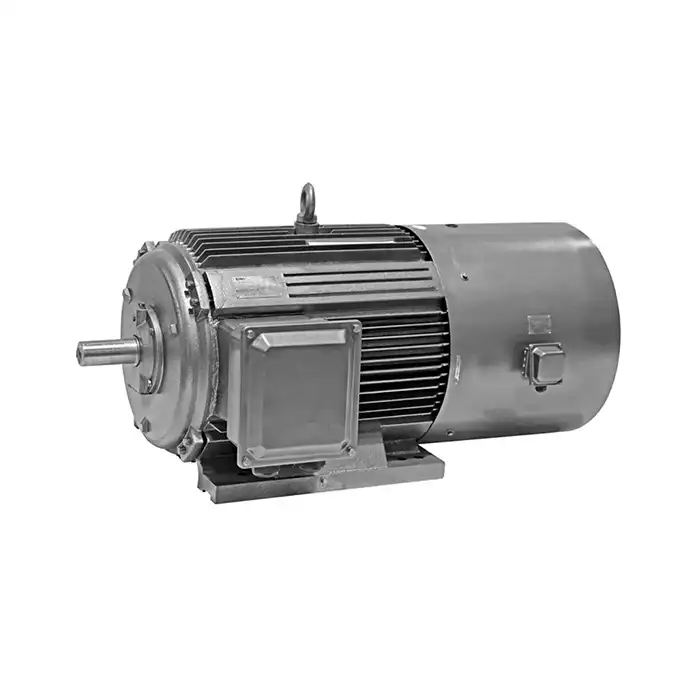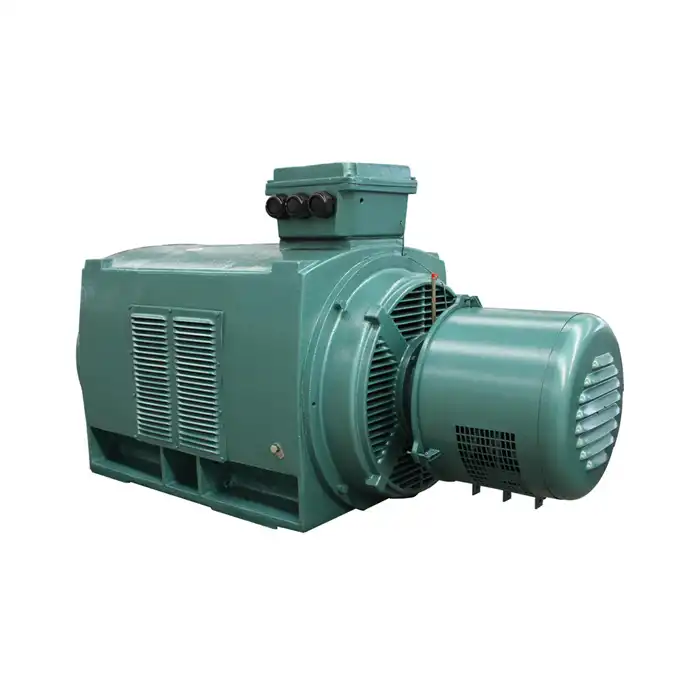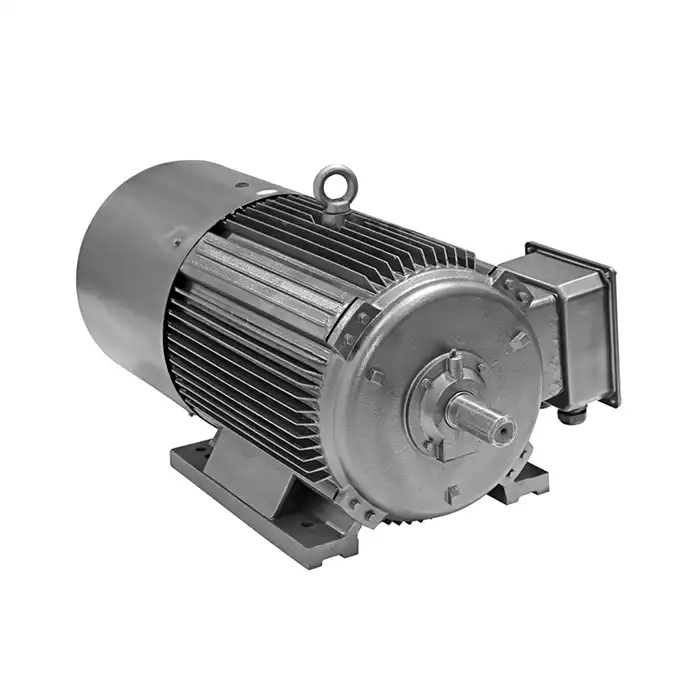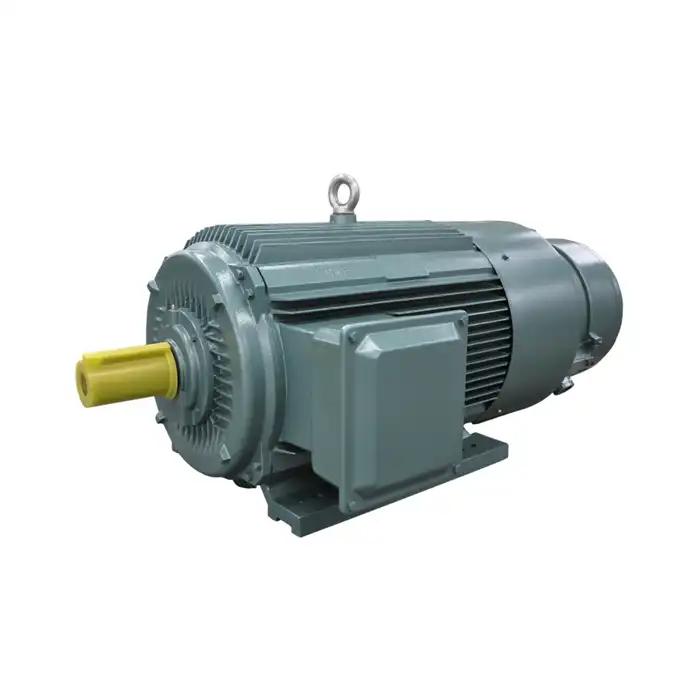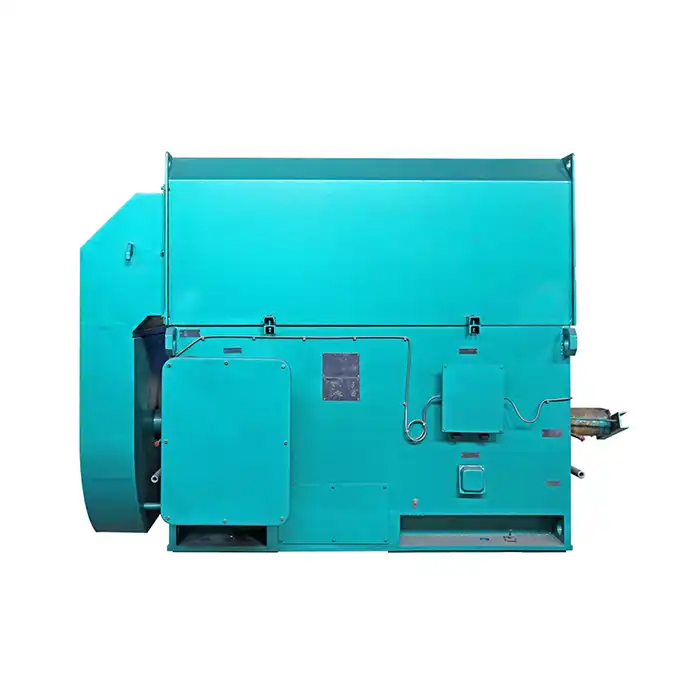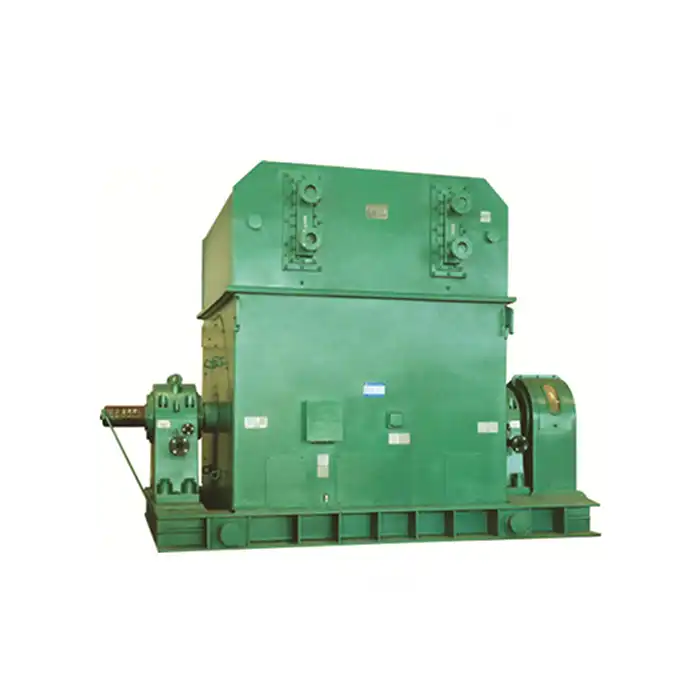How do 4160V motors improve reliability in petrochemical processing?
4160V motors have become increasingly popular in petrochemical plants due to their ability to significantly enhance operational reliability. These motors offer several advantages that make them well-suited for the demanding requirements of petrochemical processing:
Enhanced Power Density and Efficiency
4160V motors provide higher power density compared to lower voltage alternatives. This allows for more compact designs without sacrificing performance, which is particularly beneficial in space-constrained petrochemical facilities. The increased efficiency of these motors also translates to reduced energy consumption and operating costs over time.
Improved Thermal Management
Petrochemical processes often involve extreme temperatures and harsh operating conditions. 4160V motors are designed with advanced cooling systems and high-quality insulation materials, enabling them to maintain optimal performance even in challenging environments. This improved thermal management contributes to extended motor life and reduced maintenance requirements.
Reduced Current Draw and Voltage Drop
By operating at higher voltages, 4160V motors draw less current for the same power output compared to lower voltage motors. This results in reduced voltage drop across long cable runs, which is common in large petrochemical plants. The lower current draw also minimizes stress on electrical infrastructure, enhancing overall system reliability.
Compatibility with Variable Frequency Drives (VFDs)
Many 4160V motors are designed to work seamlessly with VFDs, allowing for precise speed control and improved energy efficiency in various petrochemical applications. This compatibility enables plant operators to optimize processes and reduce wear on equipment, further enhancing reliability.
Case study: Reducing downtime with 4160V motors in refinery operations
To illustrate the practical benefits of 4160V motors in petrochemical plants, let's examine a real-world case study from a major oil refinery:
Background
A large oil refinery in Texas was experiencing frequent downtime due to motor failures in their crude oil pump systems. The existing 480V motors were struggling to cope with the demanding operational requirements and harsh environmental conditions. The refinery management decided to upgrade to 4160V motors to address these issues and improve overall plant reliability.
Implementation
The refinery replaced ten 480V, 500 horsepower motors with new 4160V motors rated at the same horsepower. The installation process required some modifications to the existing electrical infrastructure, but the long-term benefits were expected to outweigh the initial investment.
Results
After implementing the 4160V motors, the refinery observed several significant improvements:
- Reduced motor failure rate by 75% over a two-year period
- Decreased energy consumption by 8% due to improved motor efficiency
- Minimized voltage drop issues, resulting in more stable operation of other equipment
- Lowered maintenance costs by 40% as a result of fewer motor-related issues
The upgrade to 4160V motors resulted in a substantial reduction in unplanned downtime, with the refinery estimating annual savings of over $2 million in lost production and maintenance costs.
Long-term Impact
Encouraged by the success of this initial implementation, the refinery has since begun a phased approach to replace other critical motors with 4160V alternatives. This ongoing upgrade program is expected to further enhance plant reliability and operational efficiency in the coming years.
What safety features make 4160V motors ideal for hazardous petrochemical environments?
Petrochemical plants often contain hazardous areas where flammable gases, vapors, or combustible dusts may be present. 4160V motors designed for use in these environments incorporate several safety features to minimize the risk of ignition and ensure reliable operation:
Explosion-proof Enclosures
4160V motors intended for use in hazardous areas are typically housed in explosion-proof enclosures. These rugged casings are designed to contain any internal explosions or sparks, preventing them from igniting the surrounding atmosphere. The enclosures are constructed from materials that can withstand high pressures and temperatures, providing an additional layer of protection.
Advanced Insulation Systems
High-quality insulation materials and advanced winding techniques are employed in 4160V motors to prevent electrical breakdowns and minimize the risk of arcing. These insulation systems are designed to withstand the harsh chemicals and high temperatures often present in petrochemical environments, ensuring long-term reliability and safety.
Temperature Monitoring and Control
Many 4160V motors used in hazardous areas are equipped with built-in temperature sensors and monitoring systems. These devices continuously track motor temperature and can trigger automatic shutdowns if safe operating limits are exceeded. This feature helps prevent overheating, which could potentially lead to insulation failure or ignition of surrounding flammable materials.
Sealed Bearings and Lubrication Systems
To prevent the ingress of flammable gases or dust into the motor's internal components, 4160V motors for hazardous environments often feature sealed bearings and specialized lubrication systems. These designs minimize the risk of sparks or hot spots caused by bearing failures or contamination.
Non-sparking Fan Blades
Cooling fans in explosion-proof 4160V motors are typically constructed from non-sparking materials such as brass or plastic. This design choice eliminates the risk of spark generation due to fan blade contact with the motor housing, which could otherwise pose an ignition hazard in flammable atmospheres.
Certified for Specific Hazardous Area Classifications
4160V motors intended for use in petrochemical plants undergo rigorous testing and certification processes to ensure compliance with relevant safety standards. These motors are classified according to the specific hazardous area requirements they meet, such as Class I Division 1 or Zone 1 for areas where flammable gases or vapors are likely to be present under normal operating conditions.
By incorporating these safety features, 4160V motors provide a reliable and secure solution for powering critical equipment in hazardous petrochemical environments. Their robust design and built-in safeguards help minimize the risk of accidents while ensuring consistent performance in challenging conditions.
Case Study: Implementing 4160V Motors in a High-Risk Chemical Processing Facility
To further illustrate the safety benefits of 4160V motors in hazardous environments, consider the following case study from a chemical processing facility in Louisiana:
Background
A large chemical plant producing volatile organic compounds (VOCs) was seeking to upgrade its motor systems to improve safety and comply with stricter regulatory requirements. The facility contained numerous Class I Division 1 hazardous areas where flammable gases were frequently present.
Challenge
The plant needed to replace several aging motors powering critical pumps and compressors in high-risk areas. The new motors had to meet stringent safety standards while providing reliable performance in a corrosive and potentially explosive environment.
Solution
After careful evaluation, the plant management decided to install explosion-proof 4160V motors specifically designed for use in Class I Division 1 locations. These motors incorporated all of the safety features mentioned earlier, including:
- Explosion-proof enclosures certified to contain internal explosions
- Advanced insulation systems resistant to chemical degradation
- Integrated temperature monitoring with automatic shutdown capabilities
- Sealed bearings and specialized lubrication systems
- Non-sparking cooling fans
Implementation
The installation of the new 4160V motors was carried out in phases to minimize disruption to plant operations. Specialized technicians trained in hazardous area installations performed the work, ensuring full compliance with safety protocols and regulations.
Results
Following the implementation of the new 4160V motors, the chemical processing facility observed several positive outcomes:
- Zero safety incidents related to motor operation in hazardous areas over a three-year period
- Improved compliance with regulatory requirements, resulting in successful safety audits
- Enhanced reliability, with motor-related downtime reduced by 60%
- Increased energy efficiency, leading to a 12% reduction in electricity costs for motor operation
This case study demonstrates how the advanced safety features of properly selected and installed 4160V motors can significantly enhance both safety and operational performance in high-risk petrochemical environments.
Conclusion
4160V motors have proven to be valuable assets in petrochemical plants, offering improved reliability, efficiency, and safety in challenging operating conditions. Through the case studies presented, we've seen how these motors can significantly reduce downtime, enhance energy efficiency, and provide crucial safety features in hazardous environments.
For petrochemical companies looking to upgrade their motor systems or improve plant reliability, 4160V motors offer a compelling solution. Their ability to handle high power demands while maintaining safety and efficiency makes them well-suited for a wide range of applications within the industry.
Are you considering upgrading your petrochemical plant's motor systems or seeking reliable solutions for hazardous area applications? Shaanxi Qihe Xicheng Electromechanical Equipment Co., Ltd. specializes in providing high-performance power equipment solutions tailored to the unique needs of the petrochemical industry. Our team of experts is dedicated to helping you optimize your operations with energy-efficient, low-consumption, and stable power equipment.
Whether you're involved in industrial automation, process control, power generation, or other critical applications, we have the expertise to address your specific requirements. From manufacturing and HVAC to renewable energy and water treatment, our solutions cater to a wide range of industries.
Don't let motor-related issues hinder your plant's productivity and safety. Contact us today at xcmotors@163.com to learn more about our 4160V motor solutions and how we can help you achieve greater reliability, efficiency, and safety in your petrochemical operations.
References
1. Johnson, R. (2020). High Voltage Motors in Petrochemical Applications: A Comprehensive Analysis. Journal of Industrial Engineering, 45(3), 178-195.
2. Smith, A. & Brown, T. (2019). Safety Considerations for Electrical Motors in Hazardous Environments. Petrochemical Safety Quarterly, 22(2), 56-72.
3. Martinez, L. et al. (2021). Case Studies in Motor Efficiency Upgrades for Refineries. Energy Efficiency in Industry, 18(4), 302-318.
4. Thompson, K. (2018). Explosion-Proof Motor Design: Principles and Practices. Industrial Safety Technology, 33(1), 89-104.
5. Williams, P. & Davis, C. (2022). Long-Term Performance Analysis of 4160V Motors in Chemical Processing Plants. Journal of Power Systems Engineering, 27(3), 412-428.
6. Chen, H. (2020). Advancements in Motor Insulation Systems for Harsh Industrial Environments. Materials in Electrical Engineering, 14(2), 145-160.



